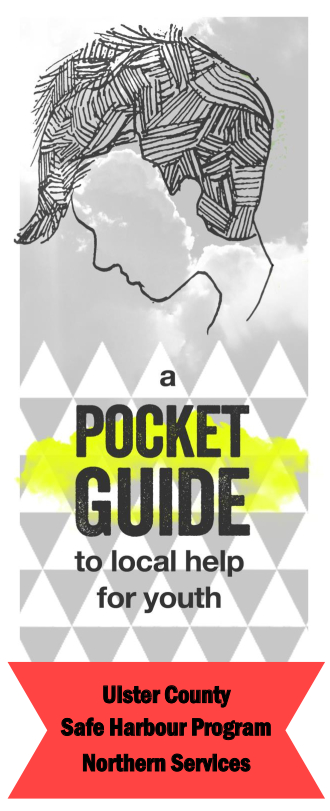
What would you do if someone you know appears to be in danger, is depressed, suicidal, engaging in risky behaviors, and/or is being bullied online?
Tips to engage other youth in conversations and provide help:
- Don’t assume they want your help or make assumptions about what others are going through. Asking general/ open- ended questions such as: “How do you feel?” “How have you been doing?” “What’s been going on today?” “What’s changed since the last time I saw you?” “Hey, I’ve missed you. How have you been doing?” “I’ve noticed you’ve been hanging out with your partner a lot and when you come back to hang out with the group, you’re quiet.” “If something is on your mind, please know you can talk to me whenever you feel like it” and/or “Hey! I saw this amazing Pocket Guide with resources for youth (see below). I picked one up for myself and grabbed an extra one. Would you like it?”
- Be aware of your own judgments and put them aside. Pay attention to body language/facial expressions. Youth are not likely not open up to people they do not trust and/or feel judged by. Additionally, other youth may not want to burden you with their problems unless they feel you are strong enough to hear what they have to say.
It’s also important to:
- Put away and silence your phone.
- Turn your whole body to face the person in front of you and maintain eye contact.
- Engage intentionally with the person in front of you. This will help build trust between the two of you and potentially open up the conversation.
- Validate! Never say “That’s so awful! I can’t or don’t believe that happened to you!” Sometimes what people hear instead is that you DON’T believe them. Instead, you can respond with “I believe you and it’s not your fault!” This is a very validating expression.
- Never say “I know how you feel” as their experience may be different from your own.
- Don’t make promises you can’t keep. Avoid statements such as “We’re going to fix this” or “You are safe now.” Instead, try “I’ll do my best to help” or “Let’s try our best to improve this situation and/or to keep you safe.”
- Provide encouragement and examples of positive attributes: Simply pointing out someone’s positive attributes “but you are so smart!” can be frustrating for some even though it seems like a compliment. The reason it is frustrating for a survivor of a crime or someone who is being bullied for example, to hear nice things about themselves, is because they also require support or examples about how to use that asset to better their life. Instead of simply giving a compliment, explain how the asset can be used to help the person in actionable terms. “Even though , remember what a great writer you are! I admire that. I heard about this creative writing program at school. I’ll get you the information in case you would like to learn more about it. It may be helpful to have this experience when pursuing a writing career down the line!

ULSTER COUNTY POCKET GUIDES (Hotlines and Safe Spaces!)
Northern Ulster County Pocket Guide

